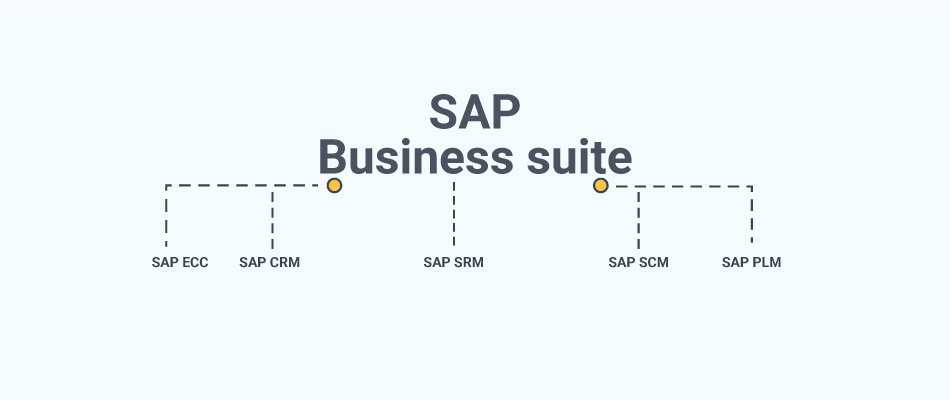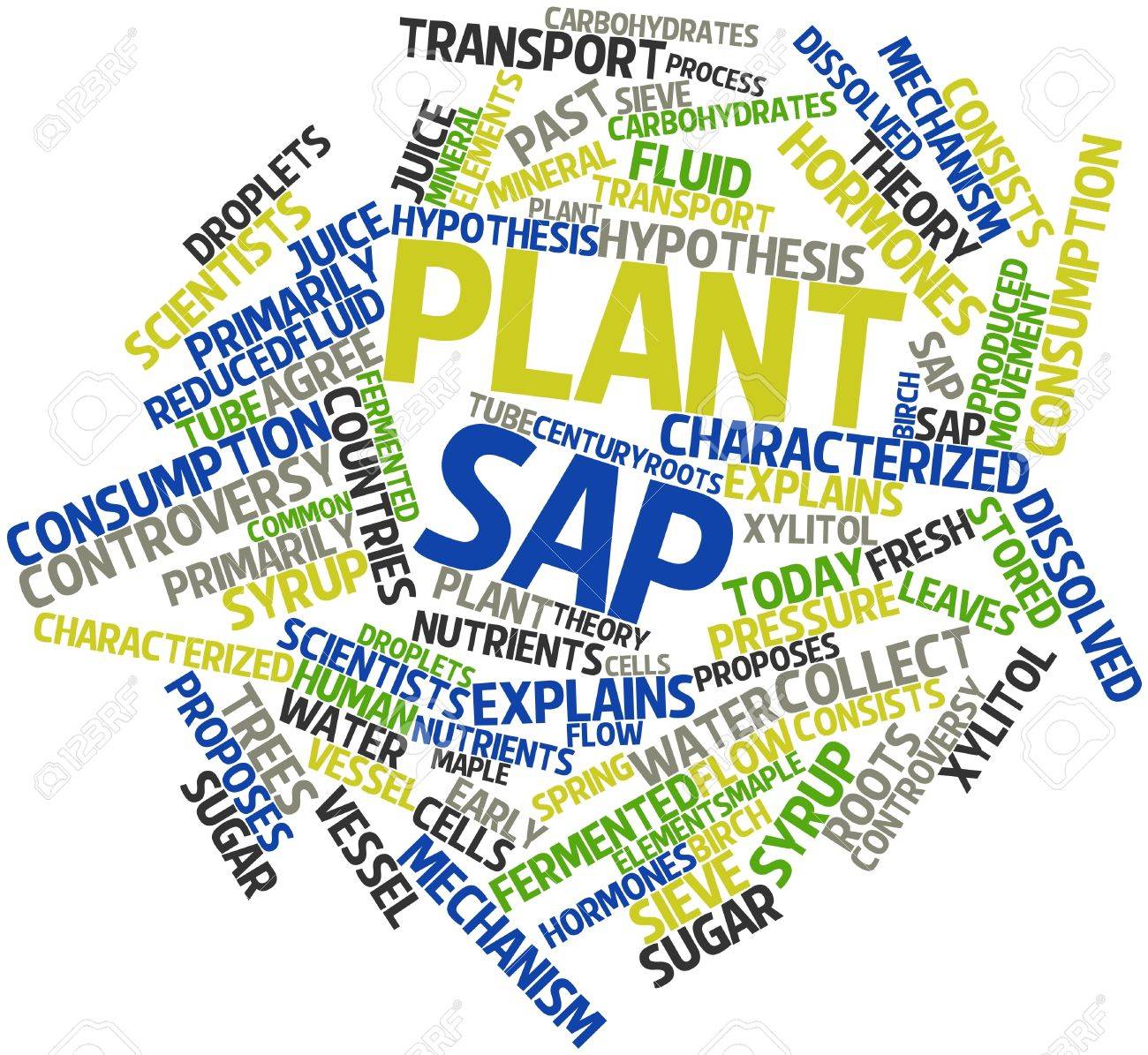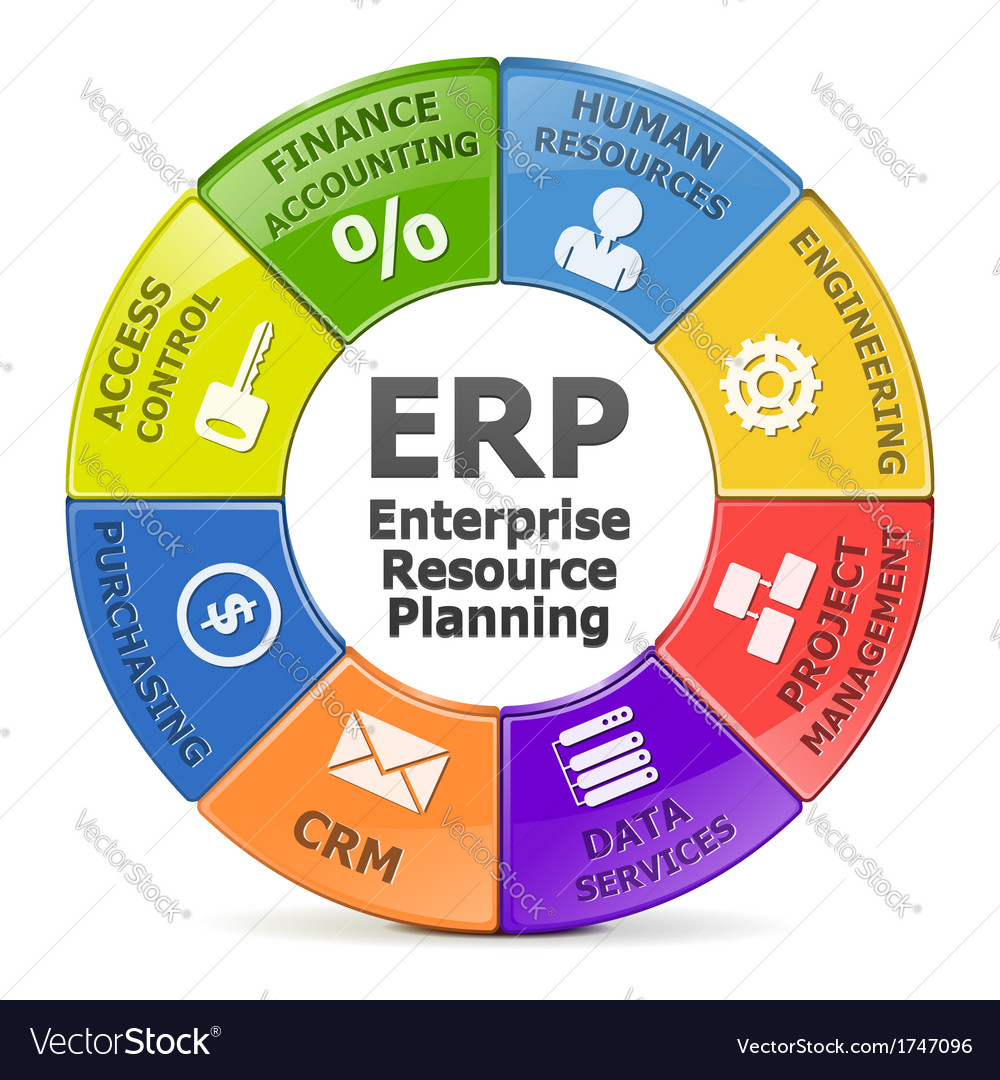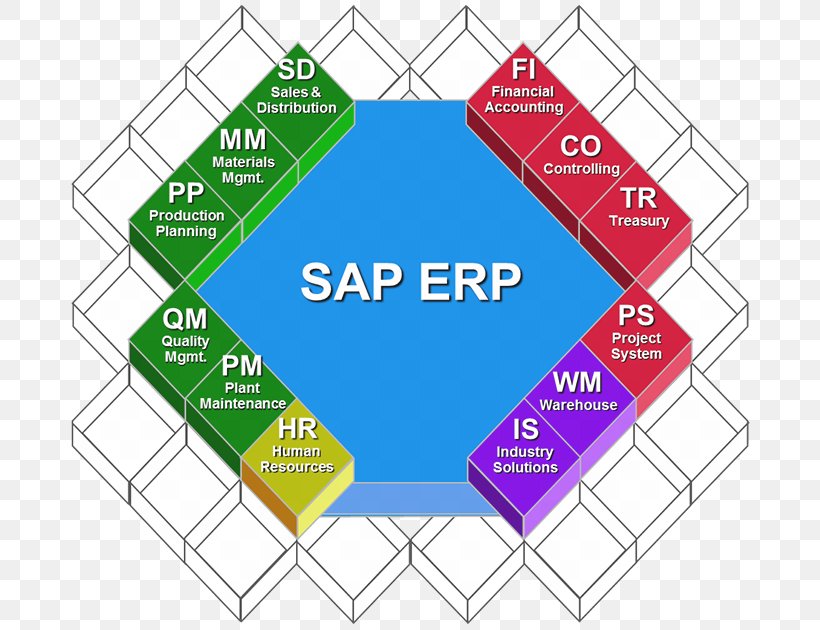2 SAP Business Solutions: SAP ERP and SAP CRM
Introduction
This article is specifically designed to discuss two important parts of SAP business suite, SAP ERP and SAP CRM. As far as enterprise software is concerned, SAP is considered as the world’s market leader. SAP is the most-used ERP software because it allows every department to communicate with each other easily. SAP contains hundreds of fully integrated modules for effective communication and data exchange between its functions. SAP helps to support business processes like controlling, sales, production, logistics, human resource and marketing. So in this article, let us try to know and understand SAP and its application in the market.
SAP Business suite
· The SAP business suite is a suite of business applications to help companies to manage the entire value chain across business networks, transforming into a more adaptive business.
· The SAP business suite provides open and flexible solutions, supporting database applications, Operating system and hardware platforms from most major vendors.
· The SAP business suite includes the following SAP solutions:
Ø SAP ERP (Enterprise Resource Planning)
Ø SAP CRM (Customer Relationship Management)
Ø SAP SCM (Supply Chain Management)
Ø SAP PLM (Product Lifecycle Management )
Ø SAP SRM (Supplier Relationship Management)
In this article you will be able to know and learn about only two SAP business solutions, SAP ERP and SAP CRM. For this you are required to know and keep some knowledge of SAP and its use and application in day-to-day business.
SAP
· SAP stands for Systems Applications and Products.
· SAP is the leading vendor of Enterprise Resource Planning (ERP) software and related enterprise applications.
· SAP is one of the world’s leading producers of software for the management of real-time business processes developing solutions that facilitate effective data processing and information flow across organizations.
· SAP delivers two web shop scenarios to build up a B2B and B2C selling scenario.
SAP Netweaver platform
· SAP Netweaver is the technical foundation for many SAP applications.
· The new version of SAP Basis is called the Netweaver.
· SAP Netweaver is SAP’s integrated technology platform of SAP SE and is not a product in itself. All the products in mySAP business suite can run on a single instance of Netweaver.
· SAP Netweaver combines composition technologies and application functionality to reduce IT complexity and increase business flexibility.
· All mySAP business suites (SRM, CRM, SCM, PLM, ERP, TMS) run on SAP WebAS (The SAP Netweaver Application server). SAP WebAS is the runtime environment for the SAP applications.
· SAP WebAS can be used to perform analysis and embedded analysis in real time.
· The core capabilities of SAP Netweaver are the integration of people, information and process.
· SAP Netweaver provides platform and opportunity to compose own applications using enterprise services, orchestrate business processes and events, manage enterprise information and deliver applications and content to users more quickly and cost effectively.
ERP
· ERP stands for Enterprise Resource Planning.
· ERP refers to a kind of software that companies widely use to manage day-to-day business activities like accounting, procurement, project management, supply chain operations, risk management and compliance.
· ERP helps companies to manage and integrate all facets of a business including product development, manufacturing, marketing and sales and provides a single platform to enable the flow of data between them.
· ERP system modules include PLM, SCM, CRM, warehouse management, sales order processing, online sales, financials, human resources and decision support system.
· ERP system helps to streamline and automate business processes by creating a more accurate and efficient operation.
SAP ERP
· SAP ERP stands for Systems Applications and Products Enterprise Resource Planning.
· SAP ERP is developed by the German company SAP SE.
· SAP ERP is used to finalize claims and to close promotional accounts upon final settlement.
· SAP ERP tracks all receipts relevant for rebate processing and automatically posts accruals.
· The 3-tier client/server architecture of a typical SAP system is as follows:
Presentation layer ------- SAP GUI SAP GUI
Application layer -------- ABAP ABAP
Database layer ---------- RDBMS
Presentation layer
The presentation layer consists of any input device (web browser and mobile device) that can be used to control the SAP system.
Application layer
· All the central processing takes place at this layer.
· The application server can be one or multiple instances of the processing system.
Database layer
· The application layer server communicates with the database layer servers and is usually kept on a separate server mainly for performance and security reasons.
· Communication takes place between each layer of the system, from the presentation layer to the database system.
Application of SAP in ERP
· SAP allows access, update instantly, save time and money
· SAP allows everyone to access same source and share same source of information
· SAP helps to get instant access to real-time information
· SAP makes smarter and faster decisions based on data from the software’s reporting tools.
· SAP shares information across all business units and eliminates data inconsistency and redundancy with a single data source.
· SAP is the market leader in ERP software and helps companies of all sizes.
CRM
· CRM stands for Customer Relationship Management .
· CRM is a business strategy that aims to optimize customer interactions in order to maximize the success of the business.
· CRM helps business owners to stay totally connected with customers in order to deliver the kinds of products and services that customers truly need.
SAP CRM
· SAP CRM stands for customer relationship management.
· SAP CRM covers all the ways you need to manage customer relationships across sales, marketing, customer service and e-commerce.
· SAP CRM provides multiple industry specific scenarios and customizing options.
· SAP CRM provides comprehensive marketing functionality for automating the planning, execution and measurement of marketing effort.
· SAP CRM unites marketing planning, campaign management, e-marketing, lead management, marketing analytics and customer segmentation key functions on a comfortable and configurable interface.
· SAP CRM provides Enterprise sales, Telesales and E-selling solutions for handling customer contact anytime, anywhere.
· SAP CRM provides a good platform for the sales force to be efficient with time and effective in action.
· SAP CRM supports sales forecasting and analytics for historical and predictive information, territory and account management to optimize and increase efficiency of a company's sales organizations.
· SAP CRM service supports all aspects of service order processing within the service organization. SAP CRM service includes responding to the customer’s initial inquiry, quotation creation and processing, order creation and assignment to the most appropriate field service representative and billing of the work performed for the customer.
· The open SAP CRM ICI (Integrated Communication Interface) supports SAP CRM solutions with communication components like computer telephony integration, automatic call list distribution, interactive voice response, e-mail administration and chat system.












No comments:
Post a Comment